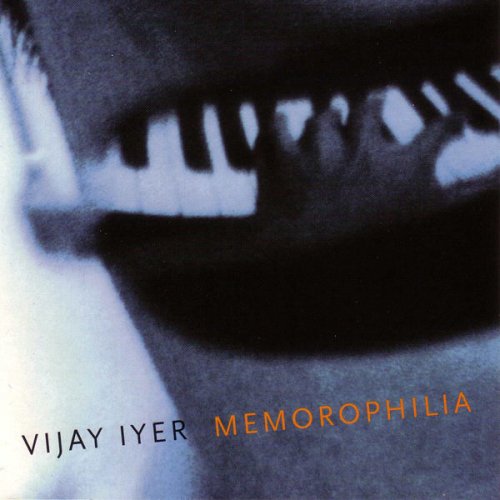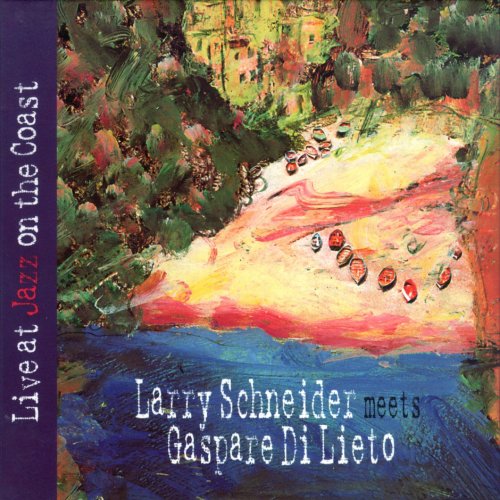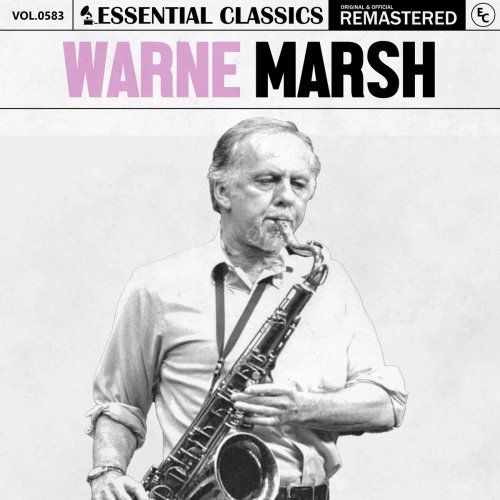Vijay Iyer - Memorophilia (1996)

Artist: Vijay Iyer
Title: Memorophilia
Year Of Release: 1996
Label: Asian Improv Records
Genre: Jazz
Quality: FLAC (tracks) / MP3 320 Kbps
Total Time: 01:06:48
Total Size: 369 Mb / 169 Mb
WebSite: Album Preview
Tracklist: Title: Memorophilia
Year Of Release: 1996
Label: Asian Improv Records
Genre: Jazz
Quality: FLAC (tracks) / MP3 320 Kbps
Total Time: 01:06:48
Total Size: 369 Mb / 169 Mb
WebSite: Album Preview
1. Relativist's Waltz 6:13
2. Stars Over Mars 9:07
3. Spellbound And Sacrosanct, Cowrie Shells And The Shimmering Sea 7:03
4. March & Epilogue 8:15
5. Peripatetics 7:51
6. Algebra 7:51
7. Off The Top 7:10
8. Memorophilia 7:57
9. Segment For Sentiment #2 6:09
Personnel:
Alto Saxophone – Steve Coleman (tracks: 1, 7)
Cello – Kash Killion (tracks: 4, 9)
Double Bass [Acoustic Bass] – Jeff Brock (tracks: 1 to 3, 7, 8)
Drums – Brad Hargreaves (tracks: 1 to 3, 7, 8), Elliot Humberto Kavee* (tracks: 4, 5, 9)
Piano, Written-By, Producer – Vijay Iyer
Tenor Saxophone – Francis Wong (tracks: 4, 9)
Trombone – George Lewis (tracks: 4, 9)
Vijay Iyer's 1995 debut finds the young pianist at the helm of three different ensembles: the Vijay Iyer Trio, Spirit Complex, and Poisonous Prophets. The acoustic trio, with bassist Jeff Brock and drummer Brad Hargreaves, appears on five of the nine tracks, with two of the five featuring alto saxophonist and M-Base pioneer Steve Coleman as a special guest. Spirit Complex, with trombonist George Lewis, tenor saxophonist Francis Wong, cellist Kash Killion, and drummer Elliot Humberto Kavee, takes over on two of the tracks, its sound considerably more abstract than the trio's. Poisonous Prophets, with guitarist Liberty Ellman, electric bassist Jeff Bilmes, and again drummer Elliot Humberto Kavee, introduces a searing electric-funk sound on one track only, "Peripatetics." Iyer also goes it alone on an obliquely blues-based piece titled "Algebra." His cerebral compositional approach and advanced playing style unite all the disparate streams that the album has to offer. Iyer, the American son of Indian immigrants, identifies strongly with the Asian Improv Arts movement, which at the time of this recording was under the leadership of Francis Wong. The presence on this album of Wong, Steve Coleman, and George Lewis of the Association for the Advancement of Creative Musicians (AACM) represents a confluence of radical schools of musical thought that Iyer is at pains to discuss in his comprehensive (and beautifully written) liner notes. With both the music and the essay, one gets a strong sense of Iyer as someone with lofty goals and an exceptional intellect.
DOWNLOAD FROM ISRA.CLOUD
Vijay Iyer Memorophilia 96 0906.rar - 369.1 MB
MP3 Vijay Iyer Memorophilia 96 0906.rar - 169.6 MB
Vijay Iyer Memorophilia 96 0906.rar - 369.1 MB
MP3 Vijay Iyer Memorophilia 96 0906.rar - 169.6 MB



![Eva Klesse Quartett - Stimmen (2024) [Hi-Res] Eva Klesse Quartett - Stimmen (2024) [Hi-Res]](https://www.dibpic.com/uploads/posts/2024-10/1730211524_folder.jpg)


![Yakuza - 2 (2024) [Hi-Res] Yakuza - 2 (2024) [Hi-Res]](https://www.dibpic.com/uploads/posts/2024-10/1730093832_yakuza-2-2024.jpg)
![Oli Bott Trio - Chronicles of Jazz (2024) [Hi-Res] Oli Bott Trio - Chronicles of Jazz (2024) [Hi-Res]](https://www.dibpic.com/uploads/posts/2024-10/1730209452_oli-bott-chronicles-of-jazz-2024.jpg)
